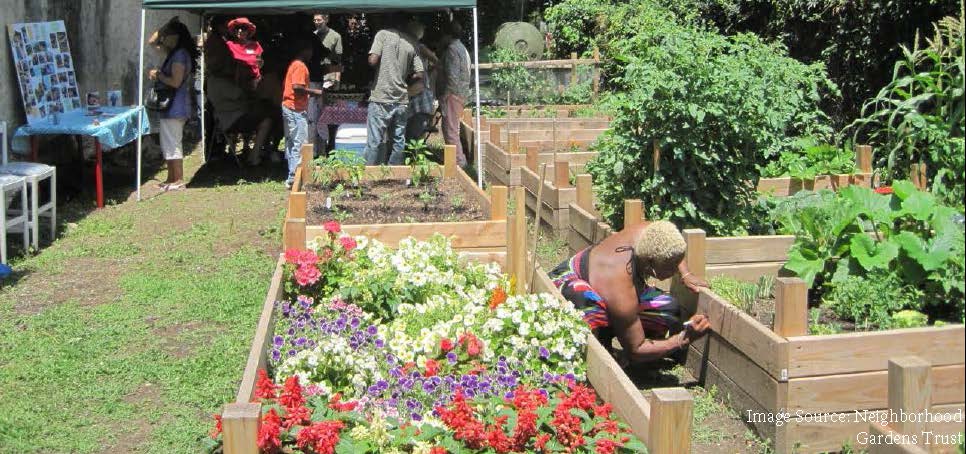
Interested in learning more about best practices in brownfields redevelopment? The 7th Annual Brownfield Coalition of the Northeast (BCONE) Northeast Sustainable Communities Workshop, held at the New Jersey Institute of Technology in Newark, attracted an international mix of government agencies, professional services providers, municipalities, and non-profit organizations to learn more about best practices in the areas of brownfield redevelopment and planning for sustainable and resilient communities.
The City of Philadelphia is working to investigate soil safety, establish standards, and to facilitate site reuse for food production and green stormwater infrastructure on some of the City’s more than 30,000 vacant lots. The BRS sponsored “Urban Agriculture and Green Infrastructure: A Case Study in the City of Philadelphia” session highlighted their innovative approach utilizing green infrastructure methods on brownfield sites.
- Partnerships. The project brings together a cross cutting partnership of the Philadelphia Office of Sustainability, the Philadelphia Water Department, and the non-profit Neighborhood Garden Trust.
- Funding. An EPA Environmental Assessment Grant awarded in 2015, the first of its kind to specifically target urban agriculture and green infrastructure, is funding environmental assessments for vacant lots that meet the criteria for urban agriculture and/or green stormwater infrastructure.
- Technical Assistance. With assistance from the Technical Assistance to Brownfield Communities Program (NJIT TAB), Philadelphia is establishing a decision tree to identify ideal locations to site projects.
- Guidance. Implementing Stormwater Infiltration Practices at Vacant Parcels and Brownfield Sitespublished by U.S. Environmental Protection Agency Office of Water Office of Solid Waste and Emergency Response provides guidance for determining the appropriateness of implementing stormwater management practices that promote infiltration at vacant parcels and brownfield sites.
This approach address the partners’ common goals of many communities, including increasing access to healthy food choices, managing stormwater, and improving public health.
Other sessions offered focused on key areas of interest:
- Remediation and reuse of waterfront properties for a mix of uses.
- Redeveloping brownfield sites to support clean energy technology.
- Comprehensive, multiple stakeholder engagement around the reuse of brownfields sites.
- Sustainable and Resilient Remediation Best Practices.
- Application of international best practices for resiliency planning for coastal communities.
To learn more about BCONE, please visit their website at: http://www.brownfieldcoalitionne.org


